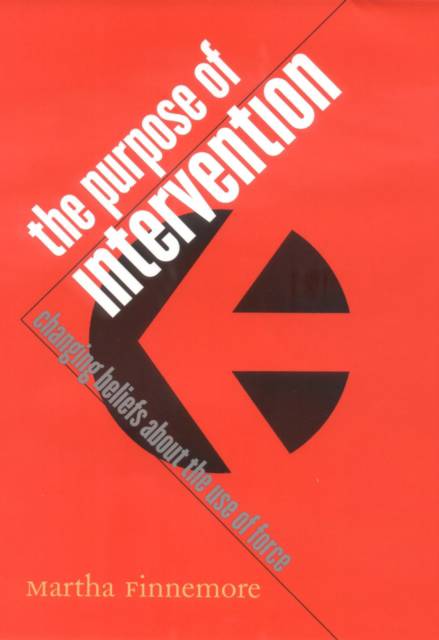
- Retrait gratuit dans votre magasin Club
- 7.000.000 titres dans notre catalogue
- Payer en toute sécurité
- Toujours un magasin près de chez vous
- Retrait gratuit dans votre magasin Club
- 7.000.000 titres dans notre catalogue
- Payer en toute sécurité
- Toujours un magasin près de chez vous
Description
Violence or the potential for violence is a fact of human existence. Many societies, including our own, reward martial success or skill at arms. The ways in which members of a particular society use force reveal a great deal about the nature of authority within the group and about its members' priorities.
In The Purpose of Intervention, Martha Finnemore uses one type of force, military intervention, as a window onto the shifting character of international society. She examines the changes, over the past 400 years, about why countries intervene militarily, as well as in the ways they have intervened. It is not the fact of intervention that has altered, she says, but rather the reasons for and meaning behind intervention--the conventional understanding of the purposes for which states can and should use force.
Finnemore looks at three types of intervention: collecting debts, addressing humanitarian crises, and acting against states perceived as threats to international peace. In all three, she finds that what is now considered "obvious" was vigorously contested or even rejected by people in earlier periods for well-articulated and logical reasons. A broad historical perspective allows her to explicate long-term trends: the steady erosion of force's normative value in international politics, the growing influence of equality norms in many aspects of global political life, and the increasing importance of law in intervention practices.
Spécifications
Parties prenantes
- Auteur(s) :
- Editeur:
Contenu
- Nombre de pages :
- 173
- Langue:
- Anglais
- Collection :
Caractéristiques
- EAN:
- 9780801489594
- Date de parution :
- 07-05-04
- Format:
- Livre broché
- Format numérique:
- Trade paperback (VS)
- Dimensions :
- 163 mm x 236 mm
- Poids :
- 281 g







